50+ SAMPLE Research Log
-
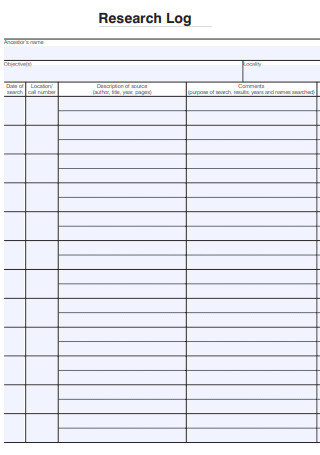
Research Log
download now -
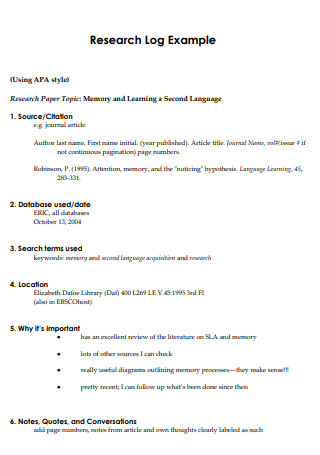
Research Log Example
download now -
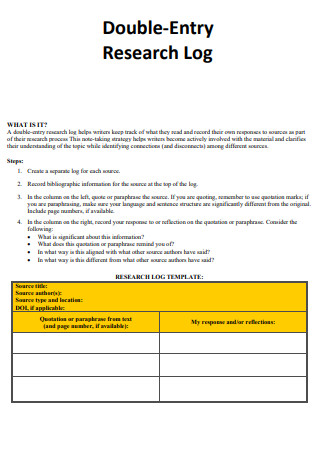
Double-Entry Research Log
download now -
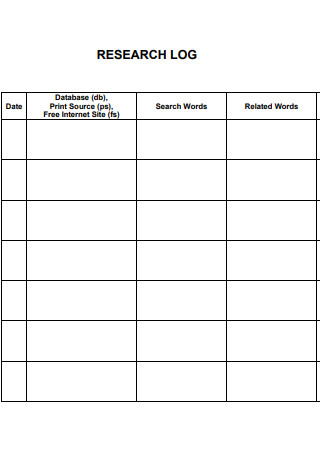
Project Research Log
download now -
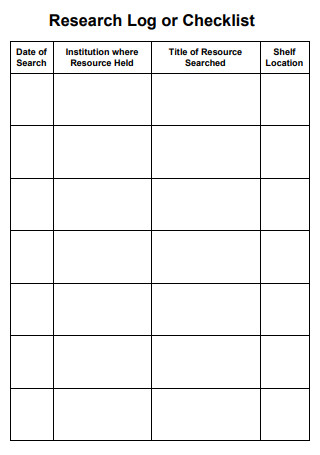
Research Log Checklist
download now -
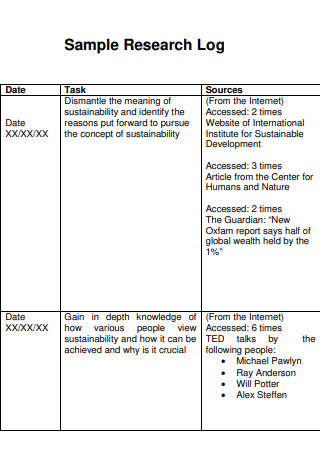
Sample Research Log
download now -
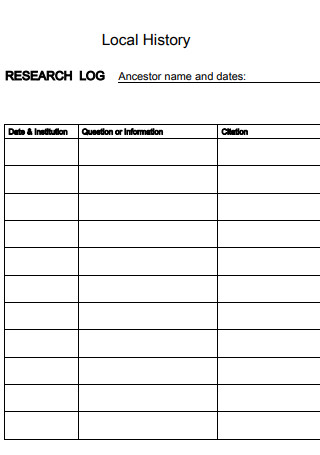
Local History Research Log
download now -

Scholarly Research Log
download now -
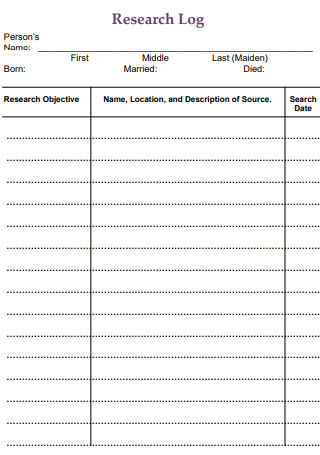
Family Research Log
download now -
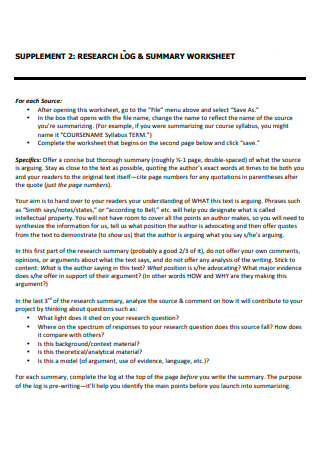
Research Log and Summary Worksheet
download now -
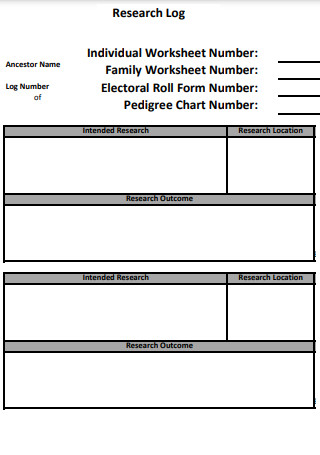
Research Log Worksheet
download now -
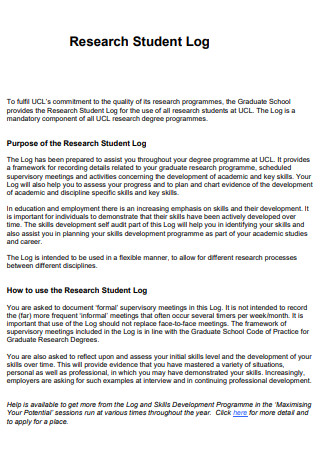
Research Student Log
download now -
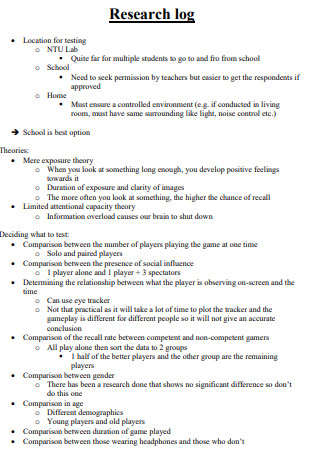
Testing Research Log
download now -
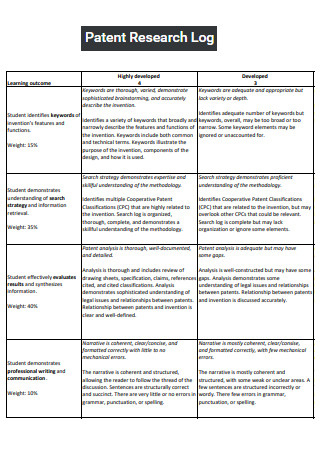
Patent Research Log
download now -
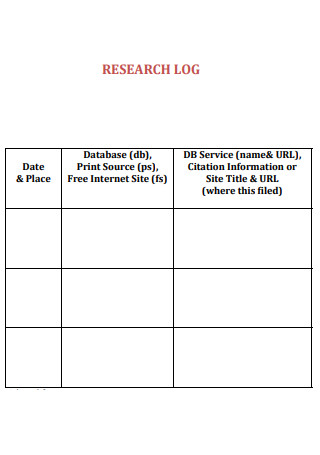
Basic Research Log
download now -
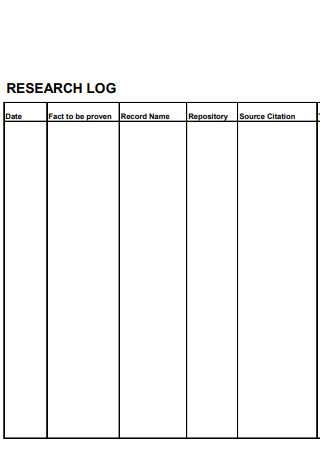
Research Log Form
download now -
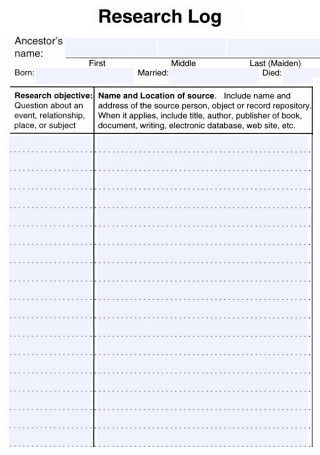
Ancestors Research Log
download now -
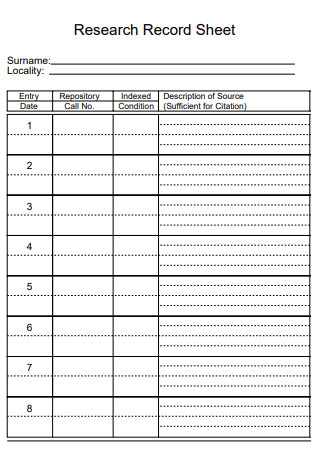
Research Record Log
download now -
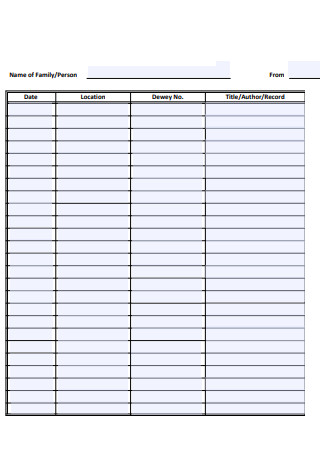
Research Log And Plan
download now -
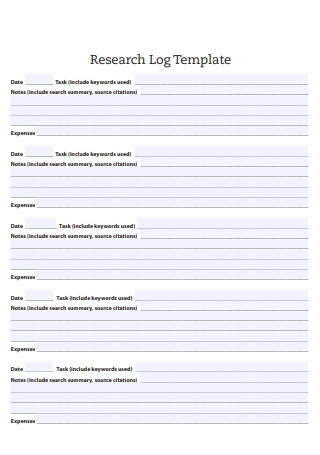
Research Log Template
download now -
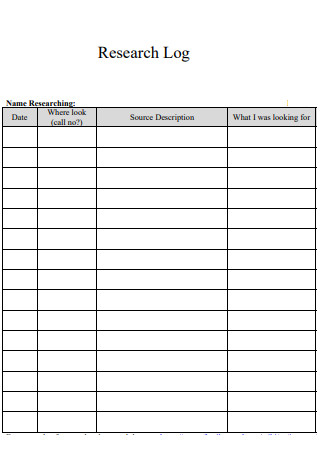
General Research Log
download now -
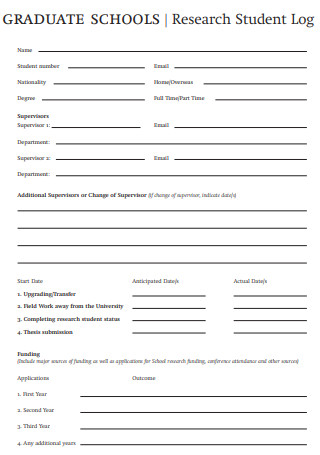
Graduate Research Log
download now -
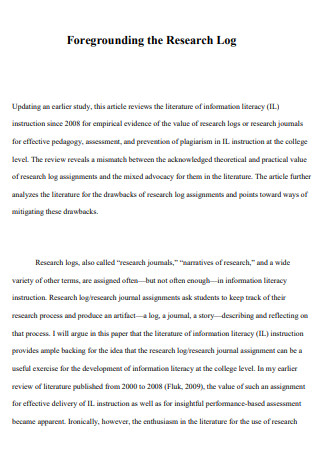
Foregrounding Research Log
download now -
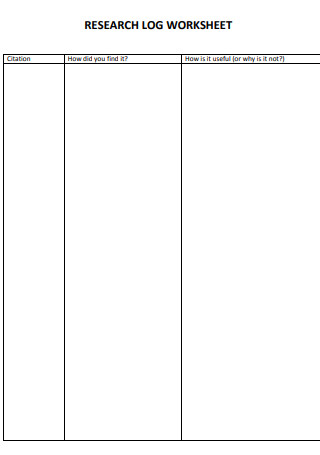
Simple Research Log Worksheet
download now -
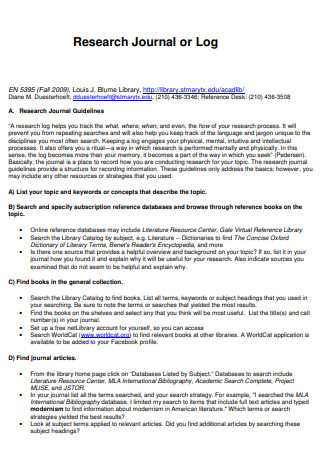
Research Journal Log
download now -
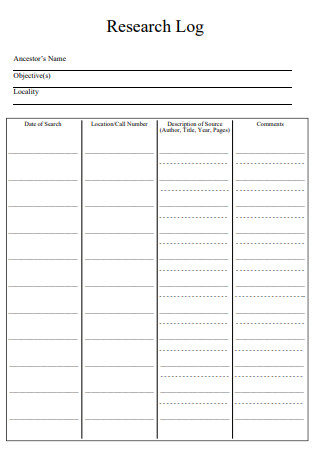
Geology Research Log
download now -
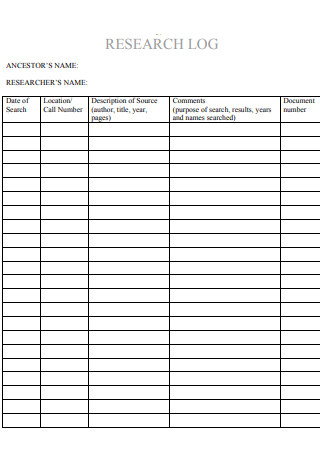
Simple Research Log
download now -
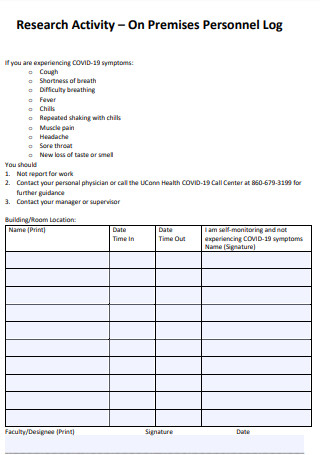
Research Personnel Log
download now -
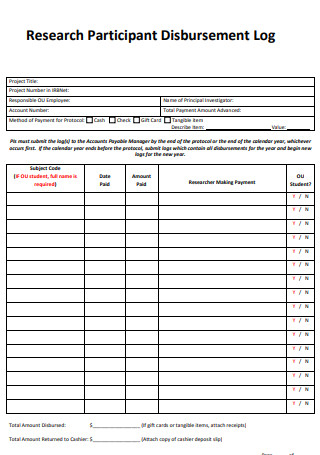
Research Participant Disbursement Log
download now -
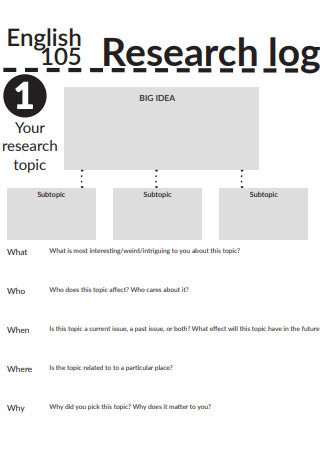
English Research Log
download now -
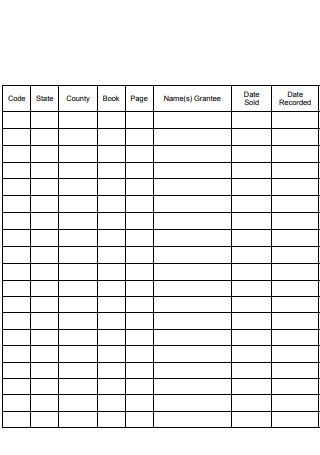
Deed Research Log
download now -
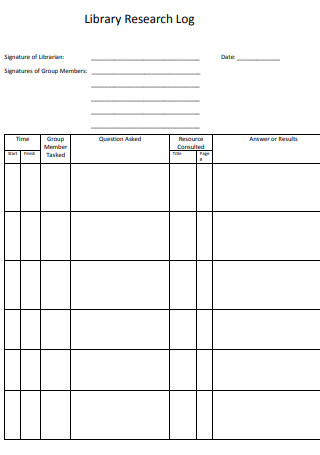
Library Research Log
download now -
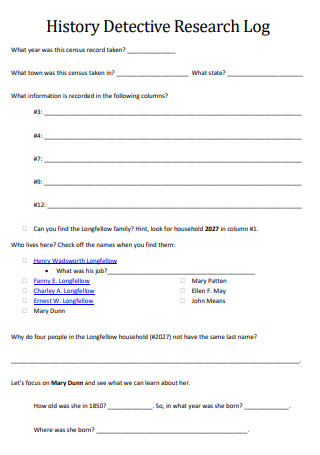
Detective Research Log
download now -
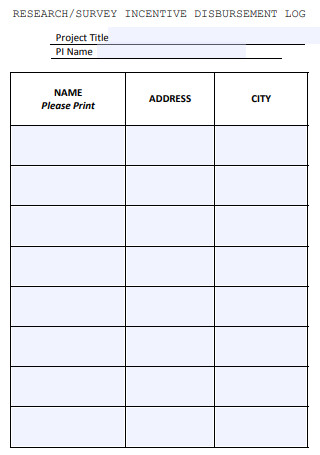
Research Incentive Disbursement Log
download now -

Postgraduate Research Log
download now -
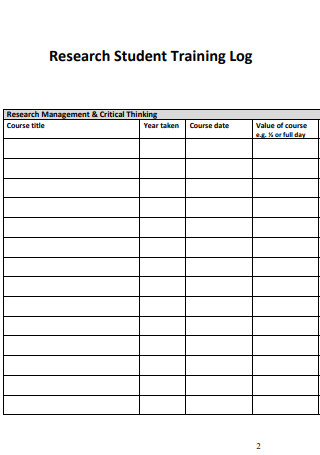
Research Student Training Log
download now -
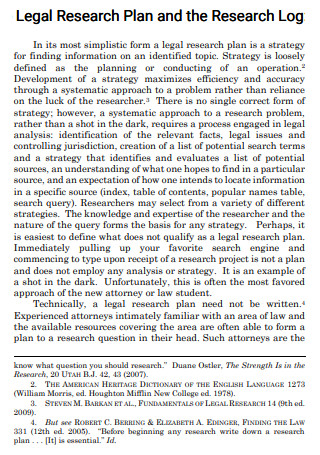
Legal Research Log
download now -
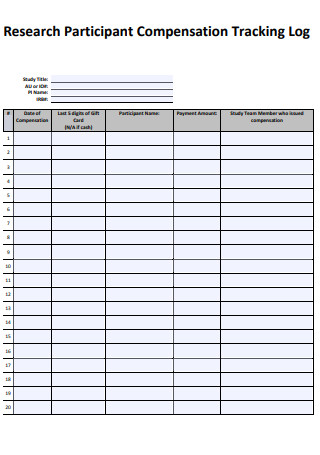
Research Participant Tracking Log
download now -
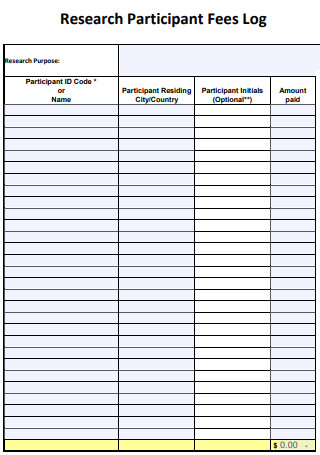
Research Participant Fees Log
download now -
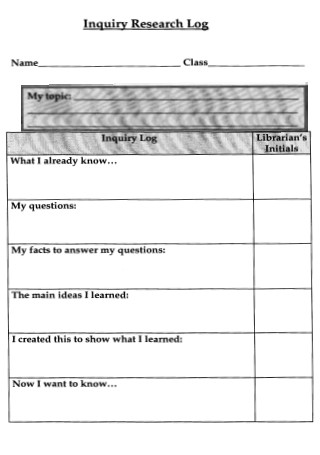
Inquiry Research Log
download now -
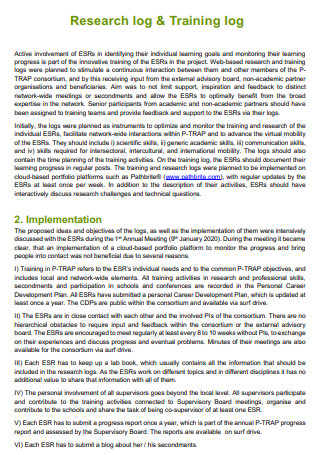
Research Training Log
download now -
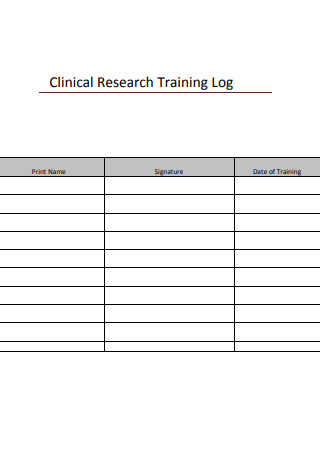
Clinical Research Training Log
download now -
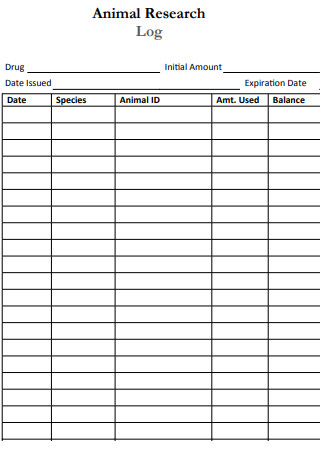
Animal Research Log
download now -
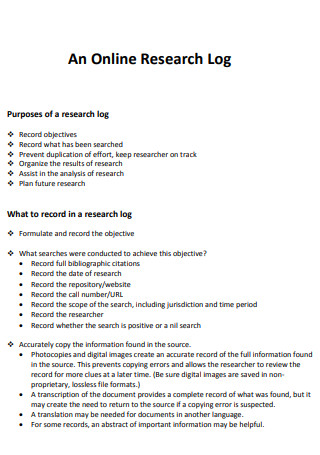
Online Research Log
download now -
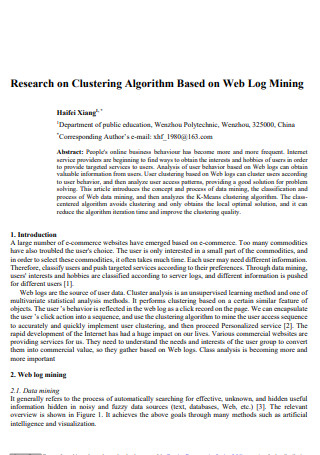
Research Web Log Mining
download now -
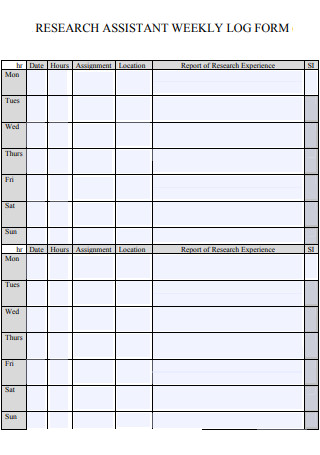
Research Assistant Weekly Log
download now -
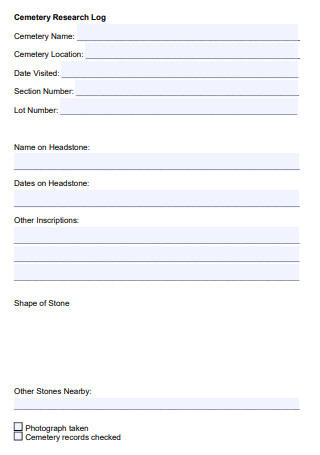
Cemetery Research Log
download now -
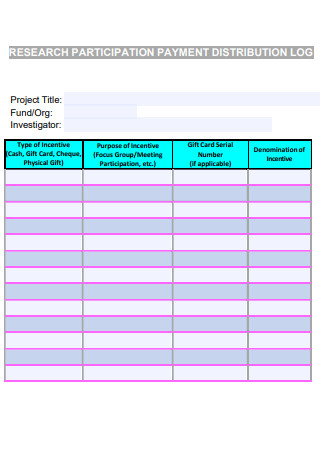
Research Participation Payment Log
download now -

Issues in Research Log
download now -
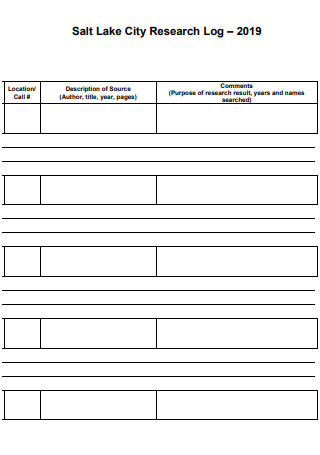
Salt Lake City Research Log
download now -
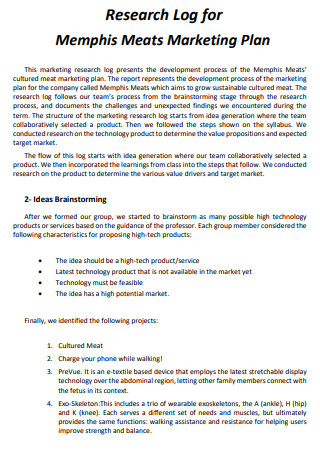
Research Log for Marketing Plan
download now
FREE Research Log s to Download
50+ SAMPLE Research Log
What Is a Research Log?
Importance of Research Logs
Why Is Research Important?
What Are the Different Types of Research?
How to Write a Research Log
FAQs
In research, we usually have primary and secondary research. What is the difference between the two of them?
Can bias be a problem in research?
Does research help in discerning things?
What Is a Research Log?
First of all, what is the process of research? Simply put, it is the process of studious inquiry and/or examination, and it involves a series of steps in order to collect information and subsequently perform an analysis of it for the purpose of improving or increasing our understanding of a particular topic or issue. In other words, we do research because we want to increase what knowledge we already have stored in our minds.
A research log is defined as a log document that contains a comprehensive list of sources that you’ve already looked up, or that you still plan to look up to which also consists of the purpose of each search that you do. A research log also contains a brief overview of your major findings, notations indicating the sources that are searched but eventually turned out empty, and comments concerning the strategies, questions, discrepancies, and analysis. Having a research log is beneficial since it helps you keep track of your progress while you continue your study on a particular issue or topic.
Importance of Research Logs
Listed below are the reasons why having a research log is important.
- It helps you cite sources. – Citing sources in a research log is massively important since it shows the readers that you are performing quality research.
- It helps you organize. A research log is also important since it allows you to sort out things neatly, such as arranging information that has been found and thoroughly analyzed separately from that information that is yet to be found and has questions that are yet to be answered.
- It helps you correlate. A research log also helps you organize and correlate documents that are related to the issue you’re researching.
- It helps you compare. Having a research log present on you allows you to compare and weigh different types of evidence in order to guide you towards making better conclusions.
- It helps you strategize. A research log enables you to strategize and make questions about the topic of concern, and it also lets you show how you do it to the readers.
- It helps originality. Finally, having a research log helps you preserve your efforts made during the research process and it helps prevent any unwanted duplication by others.
Why Is Research Important?
Listed below are the different reasons why research is important to us:
What Are the Different Types of Research?
Here are some of the different types of research that can be utilized depending on your research methodology:
How to Write a Research Log
Creating a research log involves many procedures such as gathering and exploring different types of ideas. Having a log helps you keep track of information during the research, and here are the steps involved to make one:
-
1. Pick a Medium to Use
Picking a medium to have your research logs stored would be the first step. It can be your personal computer or a capable enough mobile device. In today’s society, when the need for technology has become so common, researching and inputting notes immediately into your computer or mobile device will certainly save you a lot of time. First of all, you need to make certain that your computer or device is stable so that you do not waste your gathered research data. Keep in mind that one of the advantages of log reporting is that it allows you to develop organizational abilities, so having an organized medium in storing logs would be a good place to start.
-
2. Select a Topic
After picking a medium to use for your research log, you can now begin to pick your research topic. In this step, begin your research log by describing how you evaluated different research ideas. Enter in your journal or your research log which issues you considered and how you arrived at your decision. You can also mention in your log notes that you sought additional help from a lecturer or a classmate. Creating a research log is a discovery process, so record anything that piques your interest as you investigate your topic.
-
3. Enter the Necessary Information
After selecting the research topic to be written down in the log, this is the step where you enter the necessary information related to your topic. In this step, don’t forget to include the necessary research materials such as library books, online databases, and interviews with your classmates or with specialists in the topic you’ve chosen. Ensure that your notes are legible and prepared in chronological order. This is critical since the notes will serve as the foundation for your research paper’s annotated bibliography. To combat procrastination, make taking notes in your diary a regular habit.
-
4. Expand on Your Information
It is also good practice to expand on the information you’ve entered on the research log. In this step, Enter the dates you utilized for each source, as well as any citations and data you believe are pertinent to your study. Assume you’ve discovered an article on your selected topic or issue. Explain why the article’s contents are important to your research. It is beneficial if the article broadens your research web. Also, indicate if you approve of the article’s claim.
-
5. Citations
After writing down the necessary information in your research log and expanding on it, you can now focus on the citations. In this step, acknowledge the author and the publication where the article was published. Take detailed notes in order to have enough information to work with while completing your study and creating your annotated bibliography. When the time comes to compose your paper, you will need to reference the works from which you obtained your research data. The works that have been cited usually appear on a separate page at the conclusion of your research work and identify all of the sources in alphabetical order.
FAQs
In research, we usually have primary and secondary research. What is the difference between the two of them?
Primary research refers to a study that aims to answer a question. If the researchers are unable to find a solution to their issue in other sources, primary researchers take it into their own hands and devise their own tests and processes to collect data that will assist them in discovering the answer. Secondary research, on the other hand, uses pre-existing data. Secondary researchers, like primary researchers, strive to discover a solution to a topic. These questions, though, may already have an answer. As a result, secondary research entails largely searching for materials published by primary researchers in order to uncover previously acquired data.
Can bias be a problem in research?
Yes, bias can prove to be a problem in research. This is because bias arises in research when a systematic mistake is added into the sampling or testing process by favoring or promoting one outcome or response over another. Bias can also arise at any stage of the research process, including study design and data collecting, as well as data analysis and publishing.
Does research help in discerning things?
Yes, it does. It helps you discern between things since when you do research, you filter between low-quality and high-quality material. The more study you do on a subject, the better you’ll become at determining what’s true and what’s not. Doing research also improves your ability to identify gray zones, where evidence may be technically true but is utilized to infer dubious conclusions.
Research logs are a document that helps you save precious amounts of time by helping the researcher avoid going through a looping process of searching after a long hiatus. This type of document can also serve as a foundation with which the succeeding group of researchers about the same topic can build on. In this article, you can find plenty of examples of research logs that can aid you whenever you need to make one for yourself.
